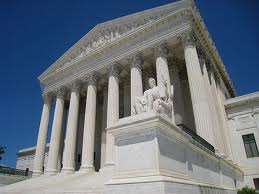
Two South Carolina parents are fighting to reclaim the power to direct their children’s education after a state Supreme Court ruling ripped it away only weeks into the new school year.
Yamilette Albertson Rodriguez and Constantine Shulikov teamed up with the national nonprofit law firm Institute for Justice to file a lawsuit Thursday to restore South Carolina’s Education Scholarship Trust Fund (ESTF) program. Lawmakers passed the program last year so that children from low-income families could use the scholarships to attend private schools. The education savings account also lets parents direct funding to buy approved education-related materials.
The parents' lawsuit, filed in the South Carolina Supreme Court, challenges the federal constitutionality of a state Department of Education policy that prohibits parents from using their children’s scholarships to pay for tuition at private schools. That policy came after the South Carolina Supreme Court ruled that letting the parents spend their funds on private school tuition violated the state’s constitutional ban on direct aid to private schools.
The parents’ lawsuit contends the state court ruling and resulting education department policy violates the U.S. Constitution.
“Because of this prohibition, five thousand low-income families lost the ability to use their scholarships to attend private schools,” said IJ educational choice attorney David Hodges. “This is a travesty not only for these children, but for the rule of law. These education scholarships were meant for every family — not every family except the ones who choose a type of education that the state constitution disfavors.”
South Carolina’s ESTF program was created in 2023. The program gives thousands of qualifying, low-income families a $6,000 scholarship that parents can use to purchase educational expenses. When the program was created, qualifying expenses included, among other things, tuition and fees at public and private schools, textbooks and curriculum for homeschooling, tutoring, school supplies, therapies, exams, and extracurricular activities, as well as any other educational expense approved by the state Department of Education.
Once the program was signed into law Rodriguez and Shulikov jumped at the opportunity to send their children to private schools that better fit their educational needs than the public schools in which they were enrolled. But, due to the Department of Education’s response to the ruling, the quarterly payments cannot be used on tuition anymore.
“It feels like I’ve had the rug pulled out from under me,” said Rodriguez, a Marine veteran who used funds from the program to enroll her 17-year-old daughter and 6-year-old twin sons in a private school. “My kids are succeeding in subjects that they used to struggle in, but without the scholarship money, I’m not sure how I’m going to afford tuition.”

Yamilette Albertson Rodriguez is one of two South Carolina parents suing to restore the state's Education Trust Fund Scholarship program.
Rodriguez, who was deployed to the Middle East to help conduct counter-piracy operations, is the sole income provider in her household. In addition to providing for her three children, she takes care of her 65-year-old father who recently moved in due to chronic health issues, including cancer. She felt her daughter’s original public school was below her expectations. Now, her daughter is succeeding in class and receiving support to pursue higher education. The teenager is so passionate about the education she’s receiving that she offered to get a job at a shoe store to help pay for her brothers to also attend the school. The job made the difference. Between Rodriguez's and her daughter’s earnings, Albertson’s savings, and the ESTF Program, the family was able to pull together enough money to pay for the education of all three children at the school. The court ruling, issued just weeks after the start of the 2024-25 school year, sent scholarship families scrambling for alternatives.
A $900,000 donation from billionaire Jeffrey Yass and other charitable contributions threw them and other families a lifeline, but that lasts only until the end of 2024.
The issue for South Carolina and 37 other states, has what is called a “Blaine Amendment.” These amendments, named after former Maine Sen. James Blaine, typically restrict public funds from being used for the “aid” or “benefit” of religious schools. However, South Carolina’s Blaine Amendment goes much further than those in other states and bans public funds from being spent “for the direct benefit” of any private school, regardless of religion. It is this provision, as interpreted by the South Carolina Supreme Court, that the South Carolina Department of Education is now using to justify its ban on the use of the ESTF Program to pay for private school tuition and fees.
IJ’s lawsuit argues that the state’s application of its Blaine Amendment is unconstitutional under two landmark United States Supreme Court cases: Meyer v. Nebraska, which recognized the right of parents to direct the education of their children; and Pierce v. Society of Sisters, which held that this right includes the right to send one’s children to a private school.
“South Carolina allows low-income families to use their scholarship funds on virtually any type of educational expense, public or private, except one: tuition at a private school,” IJ senior attorney Michael Bindas explained. “The state is penalizing parents who choose private schools for their children, a choice protected by the U.S. Constitution. The state cannot point to the South Carolina Constitution as justification for this discrimination, because the federal Constitution prohibits it.”
 Editor’s note: This article appeared Friday on The Center Square.
Editor’s note: This article appeared Friday on The Center Square.
The Mackinac Center Legal Foundation partnered with Bursch Law to file a lawsuit alleging Michigan’s restriction on the use of public funds to pay for private education is unconstitutional.
Five Michigan families and the Parent Advocates for Choice in Education (PACE) Foundation, a nonprofit supporting the rights of Michigan parents to provide educational opportunities for their children, joined the lawsuit after conventional public schools frustrated them after the COVID-19 pandemic. Plaintiff Jessie Bagos’s school only provided virtual school for her young children for much of the last school year. She wanted other options for her twin boys starting kindergarten instead of sitting in front of a screen.
“To have the option to choose schools would be life changing,” Bagos said in a statement. “For everyone, not just us. Hopefully this lawsuit can help with that.”
Section 529 of the Internal Revenue Code allows state-sponsored savings plans to fund higher education expenses. Michigan’s plan is Michigan’s Education Savings Plan (MESP). Bagos funded an MESP and wants to spend that money on their children’s private, religious school tuition.
But Michigan’s Blaine Amendment, passed in 1970, prohibits using public funds for private education. If Bagos spends MESP money on private, religious education, the Blaine Amendment will reverse Michigan’s tax deduction the parents received upon contribution.
To continue reading, click here.

Montana parents are appealing a ruling that found tax credit scholarships unconstitutional - and its impact might be felt around the entire country
Montana parents appealed to the U.S. Supreme Court last week, asking the court to overturn a ruling that found tax-credit scholarships unconstitutional in the state.
The Montana Supreme Court had ruled 5-2 in December that the state’s tax credit scholarship program violated the state’s constitutional bans aid to sectarian schools. The ruling allowed the state to create a new tax credit scholarship program for students to attend only non-religious private schools.
“It is a bedrock constitutional principle that the government cannot discriminate against religion,” said Institute for Justice attorney Erica Smith in a press release. “Yet for the past 24 years, some states have blocked religious schools and the families who choose them from participating in student-aid programs. It is time for the U.S. Supreme Court to step in and settle this issue once and for all.”
At issue is Montana’s Blaine Amendment, a relic of anti-Catholic and anti-immigrant bias that swept America in the late 19th century. The amendment is still on the books and bans direct and indirect aid to religious schools.
Florida has a similar ban on aid to religious institutions, though these arguments failed to sway the Florida Supreme Court in Bush v. Holmes (2006) and McCall v. Scott (2017).
Scholarship parents in Montana are asking the U.S. Supreme Court to determine if banning participation in educational programs because of religious preferences ultimately discriminates against religious parents in violation of the “free exercise” clause of the First Amendment of the U.S. Constitution.
Past U.S. Supreme Court cases also come into play, such as Zelman v. Simmons-Harris, which ruled vouchers did not violate the Establishment Clause because aid was to the student and not the religious institution.
The Court also has rejected the notion that tax credits are equivalent to tax expenditures by the government in Arizona Christian School Tuition Organization v. Winn (2011).
More recently, the Supreme Court ruled in Trinity Lutheran v. Comer (2017) that state governments could not deny grants to religious organizations for playground resurfacing while providing grants to similar, but non-religious organizations. Denial of the grant, the court ruled, violated the “free exercise” clause of the First Amendment.
In light of that ruling, the U.S. Supreme Court ordered the Colorado Supreme Court to revisit Taxpayers for Public Education v. Douglas County School District (2015), which found the district-run voucher program violated the state’s Blaine Amendment ban on direct aid to religious schools. However, the voucher program was dismantled and the issue rendered moot after the American Federation of Teachers funneled $600,000 into local school board election and took over conservative Douglas County.
Blaine Amendments have successfully struck down vouchers in Arizona and Montana but failed in Florida, Nevada and Oklahoma.
If the appeal from the Montana parents is accepted, a ruling by the U.S. Supreme Court likely would clarify how states may read their respective Blaine Amendments.
 School shooting is top story: A gunman's murder of 17 students and staff at Marjory Stoneman Douglas High School in Parkland on Feb. 14 is voted the top story of the year in the Associated Press’ annual poll of U.S. editors and news directors. The shooting spurred security reforms at schools across the country and launched a student-led movement, March for Our Lives, that helped organize walkouts, peaceful protests and a campaign for stricter gun laws. Associated Press. The dozen biggest K-12 education technology stories of the year. Education Week.
School shooting is top story: A gunman's murder of 17 students and staff at Marjory Stoneman Douglas High School in Parkland on Feb. 14 is voted the top story of the year in the Associated Press’ annual poll of U.S. editors and news directors. The shooting spurred security reforms at schools across the country and launched a student-led movement, March for Our Lives, that helped organize walkouts, peaceful protests and a campaign for stricter gun laws. Associated Press. The dozen biggest K-12 education technology stories of the year. Education Week.
Panic alarms bill: State Sen. Lauren Book, D-Plantation, files a bill that would require at least one silent alarm, also known as a panic button, in every public school building that would instantly alert local law enforcement. Book calls S.B. 174 "Alyssa's Law," in memory of Alyssa Alhadeff, a 14-year-old student who was killed during the shootings at Stoneman Douglas High. News Service of Florida. Orlando Weekly. Sun Sentinel. (more…)
Florida voters will not be voting this fall on whether to make the state constitution more amendable to school vouchers.
The state's Constitution Revision Commission is still finalizing its proposals for the November ballot. But two proposals that might have drawn the attention of private school choice advocates won't be in the mix.
One of those proposals would have struck Florida's so-called Blaine Amendment. The debate around that now-scuttled proposal could hold insights for school choice advocates looking to overturn provisions in state constitutions that bar public aid to religious institutions.
Commissioner Roberto Martinez is a Miami lawyer who supported the proposal. He pointed to programs like a prison substance-abuse program that faced a legal challenge from the Council for Secular Humanism. Courts ultimately ruled the program's faith-based providers do not violate Florida's Blaine Amendment.
"I say this with all respect to the judges who were involved in those opinions. They performed legal jiu-jitsu in order to find the programs in effect constitutional, and not in violation of the no-aid provision, even though those programs provided aid to a religious organization," Martinez said while debating the proposal last week.
If judges had blocked the program — which, he argued, the state constitution technically requires — they could have wound up on a collision course with the U.S. Supreme Court, which last year found it was unconstitutional to exclude religious schools from a program the helped fund safe playground equipment.
Since Florida judges kept the door open for faith-based substance-abuse services, the state's "no-aid" provision remains safe from a federal challenge that could gut it — at least for now. (more…)
 Housing for teachers: It's becoming harder for Miami-Dade County teachers to find a place they can afford to rent in Miami-Dade County. So the county and the school district are collaborating on a plan to build apartments for teachers above a new school. The first phase of the plan would be to tear down an abandoned public housing project near Southside Elementary School in the Brickell area and build a school for grades 6-8. One floor would be used for apartments, with other floors devoted to parking and classrooms. “When you look at teacher salaries, it’s just impossible for them to get into the housing market,” says Ned Murray, associate director of Florida International University’s Metropolitan Center. If it's successful, the county and board will propose building a 300-apartment complex next to Phillis Wheatley Elementary, just north of downtown. Miami Herald.
Housing for teachers: It's becoming harder for Miami-Dade County teachers to find a place they can afford to rent in Miami-Dade County. So the county and the school district are collaborating on a plan to build apartments for teachers above a new school. The first phase of the plan would be to tear down an abandoned public housing project near Southside Elementary School in the Brickell area and build a school for grades 6-8. One floor would be used for apartments, with other floors devoted to parking and classrooms. “When you look at teacher salaries, it’s just impossible for them to get into the housing market,” says Ned Murray, associate director of Florida International University’s Metropolitan Center. If it's successful, the county and board will propose building a 300-apartment complex next to Phillis Wheatley Elementary, just north of downtown. Miami Herald.
Education court case: Now that the legislative session is over, the Florida Supreme Court will resume its review of the lawsuit that alleges the state has violated its constitutional role to fund an "an efficient, safe, secure and uniform high-quality education." Legislative leaders asked the court to suspend its review during the session. The plaintiffs appealed to the Supreme Court after an appeals court ruled that the question of financing was not an issue for the judicial branch. The case, Citizens for Strong Schools, was filed in 2009. Gradebook.
Atheists offer signs: The Tampa-based group Atheists of Florida is offering to provide signs with the saying "In God We Trust" free to every school in Florida to fulfill a requirement in the recently passed education bill. "We want to help educate about the First Amendment and the establishment clause, as well as about the diversity in our country," says executive director Judy Adkins. One of the versions would state "E Pluribus Unum, In God We Trust" in a circle with red, white and blue stars and stripes. The outside of the circle would contain words from the First Amendment: "Congress shall make no law respecting an establishment of religion, or prohibiting the free exercise thereof." Gradebook. (more…)
 No end to board pay: The Constitution Revision Commission rejects a proposal to end pay for members of local school boards. A majority of the members expressed concerns that ending pay would limit the diversity of candidates, especially in poor and rural counties. "If you cannot work for free, you cannot be a school board member with this proposal," St. Johns County Superintendent Tim Forson argued. Eight other proposed amendments will be discussed and voted on at a future meeting. Gradebook. Politico Florida.
No end to board pay: The Constitution Revision Commission rejects a proposal to end pay for members of local school boards. A majority of the members expressed concerns that ending pay would limit the diversity of candidates, especially in poor and rural counties. "If you cannot work for free, you cannot be a school board member with this proposal," St. Johns County Superintendent Tim Forson argued. Eight other proposed amendments will be discussed and voted on at a future meeting. Gradebook. Politico Florida.
Charter school authorizers: A proposed amendment to create charter school authorizers other than local school boards is changed to allow outside entities to also start public schools. By state law, that authority to start free public schools largely rests with local school boards. Commission member Erika Donalds, who introduced the original proposal, backs the amendment, which was brought by Patricia Levesque. redefinED.
Blaine Amendment: Former Florida Supreme Court Justice Raoul Cantero urges the Constitution Revision Commission to support a proposal that would end the prohibition against state money going to religious institutions, including schools. Citing a recent U.S. Supreme Court decision, Cantero says the Blaine Amendment is likely to be declared unconstitutional. redefinED. News Service of Florida.
Flu concerns: The flu virus is sweeping the state with 107 outbreaks already reported. Ninety-four percent of those reports are from schools and health-care facilities. Baker, Bradford and Holmes counties have had elevated activity, according to the Florida Department of Health, and 46 of the state's 67 counties are reporting increasing flu activity. Only Jackson County has reported no cases. Several school districts have sent warnings home to parents. Tampa Bay Times. WOKV. Keynoter. Gainesville Sun.
Florida's prohibition on public aid to religious institutions grew out of anti-Catholic bigotry. It's also outdated, a former state Supreme Court justice told a panel working revisions to the state's governing document. And it likely violates the U.S. Constitution.
Former Chief Justice Raoul Cantero, now a lawyer in private practice, urged the education committee of the Constitution Revision Commission to support a proposal that would erase Florida's Blaine Amendment.
The "no-aid" provision has come up in lawsuits against voucher programs that fund scholarships to religious schools. It's been used to challenge groups providing substance abuse counseling in state prisons. But a U.S. Supreme Court decision last year suggested federal justices think blanket prohibitions on public funding of religious institutions are unconstitutional. (more…)
 Teacher evaluations: Local school boards would be given the power to set evaluation standards for teachers, if a bill filed in the House gets through the Legislature next year. H.B. 427, filed by Rep. Rene Plasencia, R-Orlando, would allow school districts to opt out of the state teacher evaluation and merit pay plan and give them the option of creating their own standards for evaluating teachers. “It would return the authority back to the local school board, which I think is very important,” says Orange County School Board member Linda Kobert. Florida Politics.
Teacher evaluations: Local school boards would be given the power to set evaluation standards for teachers, if a bill filed in the House gets through the Legislature next year. H.B. 427, filed by Rep. Rene Plasencia, R-Orlando, would allow school districts to opt out of the state teacher evaluation and merit pay plan and give them the option of creating their own standards for evaluating teachers. “It would return the authority back to the local school board, which I think is very important,” says Orange County School Board member Linda Kobert. Florida Politics.
Graduation rates: The U.S. high school graduation rate hit an all-time high at 84.1 percent in 2016, according to data from the National Center for Education. In 2015 it was 83.2 percent. Florida's graduation rate was 80.7 percent. White students graduated at an 85.1 percent rate, blacks at 72.3 percent and Hispanics at 75.6 percent. Education Week.
Contract negotiations: The Hillsborough County teachers union calls the latest pay offer from the school district disappointing. The district is offering $1.8 million for bonuses to spread among the 20,000 employees represented by the union. The union has asked for the raises school officials promised years ago, which the district says could cost it as much as $17 million and which it says it cannot afford. "This is a pay cut," says Stephanie Baxter-Jenkins, the union’s executive director, who says the offer is $92 per person before taxes and won't cover the increase in health insurance premiums. "I can’t see that satisfying people." Tampa Bay Times. WTSP. Negotiations between Brevard teachers and the school district resume, but little progress over raises is made. The district is offering $876 to the highest-rated teachers and $600 to effective ones. Union officials countered with a $1,075 raise for highly effective teachers and $800 for effective ones. Florida Today. Space Coast Daily.